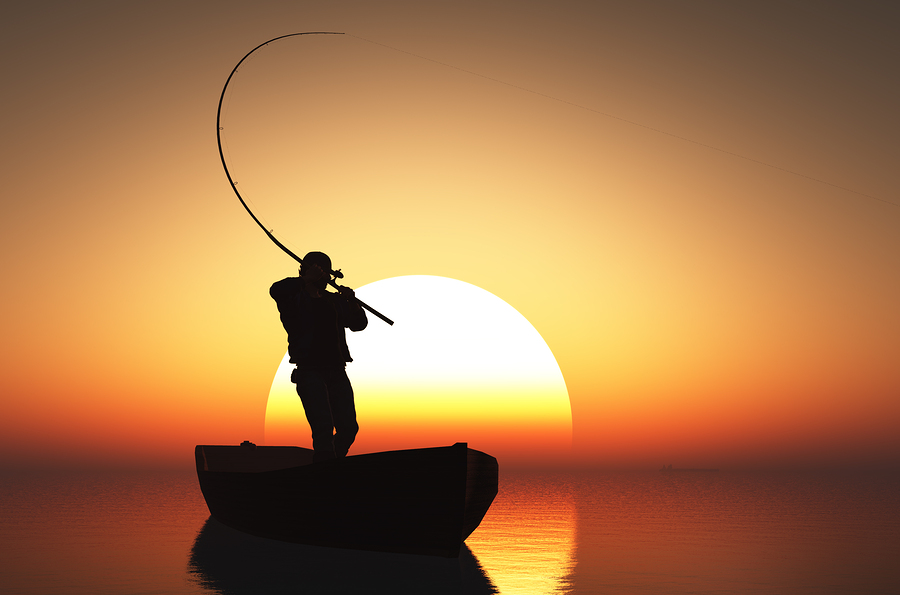
What a quirky, Cascadian pilgrimage can teach the church.
Each year during the late winter and early spring, crowds descend on the small coastal town of Forks, Washington. They come in pursuit of winter steelhead.
For many who make this trip it’s no ordinary fishing adventure; it’s a pilgrimage that borders on the religious. Last year I experienced the fervor first-hand.
It was quite a change from my work as a pastor. On Ash Wednesday, 2015, instead of crossing the foreheads of God’s people with ash, I found myself enacting a different ritual: cast, swing, step, repeat.
For the first time in years, I didn’t have any church obligations. I was on the side of the Hoh River “swinging flies” and praying I could get a steelhead to bite. Two guys I had met earlier in the day joined me, one a medical salesman from Spokane, Washington, and the other a lawyer from Helena, Montana. We were there for three days of non-stop fishing.
As my fly line would dance though the water I found my mind drifting. Could the church learn something from steelhead fishermen? Indeed, I decided, it could. Here are five lessons they taught me.
1.) Curiosity is motivating.
I caught my first steelhead February 26, 2011 while fishing outside of Forks on the Bogachiel River, but that first fish is not why I keep going back. It was the second fish that broke my line at the end of the day that keeps me returning. Ever since I felt my rod lose tension I have always wondered how big that fish must have been, and how many other fish are out there like it. The curiosity instilled during my first pilgrimage to Forks caused me to fish many rivers all over Washington state with the hope of discovering “what might be.”
I think the church could use a dose of that same kind of curiosity. How might such a curiosity change an evangelism committee? Or even a capital campaign?
2.) Rhythms are important.
Those who make the pilgrimage to Forks are attuned to the rhythms that make steelhead fishing possible. They must time their journeys based on when the steelhead arrive historically, and when weather conditions present peak opportunities to catch these elusive fish.
Steelhead fishermen also know there are no fish are in the water sometimes. And no amount of effort will change that. Yet successful steelheaders know how to read the conditions that make these elusive fish move, so they use their time on the water to its fullest.
What if we did the same in our neighborhoods? What if the church sought to learn the rhythms that shaped the lives and communities around us? Perhaps we’d be more effective in engaging unbelievers and waste less time on plug-and-play ministry programs. Rhythms are essential.
3.) So are your surroundings.
Steelheaders are some of the most attentive people on the planet. They pay attention to the different types of water, and the water temperature. They examine the clarity of the river and the flow rate.
What if we paid the same kind of attention to our cultural surroundings? How would our actions change if we became more attuned to how outside forces were shaping us?
4.) Be ready to receive.
You don’t go on a pilgrimage to give something; you go on a pilgrimage to seek and receive. Too often the assumption of the church is that it must change the dominant culture. This assumption is a bit presumptuous. What makes us think the world around us even wants what we’re offering? Didn’t Paul proclaim God made what the world calls foolishness into wisdom (1 Cor. 1:20)? Why does the church think the world will be ready to receive what even God considers on the surface to be foolishness?
Steelheaders know what it means to live in a posture of receptivity. Unlike trout, and other fish species, which generally live in the same location, steelhead are always on the move. They have only one job to do: Spawn! Just because they are in one place one day doesn’t mean they will be there the next. Therefore, with each and every cast, steelheaders wait in anticipation for what might be. What if the church came to each and every interaction in a position of receptivity? Perhaps we’d find ourselves engaged with others when we least expected it.
5.) Gratitude is essential.
For those who fish for steelhead there are few things in life that produce the same thrill as catching one of these fish. Maybe it’s the way they fight. Or maybe it’s the fact they are becoming more and more difficult to find. But once a fish is landed steelheaders look down at them in utter gratitude because they know how unusual that moment is.
What if pastors and lay leaders were grateful people even took the time to show up? Even if it was only for half the service. How would it change the way they approach their congregation, care for their flock, and preach?
Folks who fish for steelhead are unique. Often they are accused of being a little odd. Why? They fish for something that is shrinking in numbers, and that gets harder to catch every year. Yet, despite poor returns, and the difficulties that come trying to catch them, they continue to make the pilgrimage to Forks to passionately chase after them.
Sound familiar? The situation of steelheaders in Cascadia is a lot like the church in Cascadia. Maybe the pilgrimage these steelheaders make can shed a light on how God is calling us to engage with our mission field. I know it has for me.
